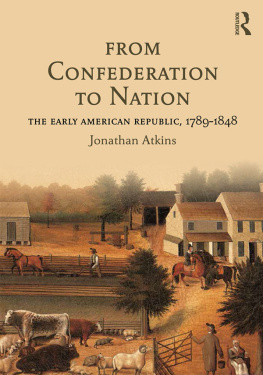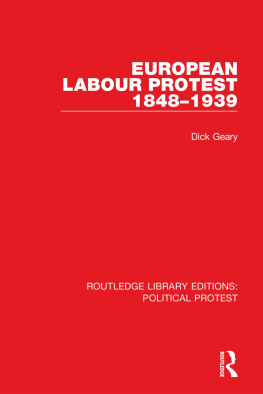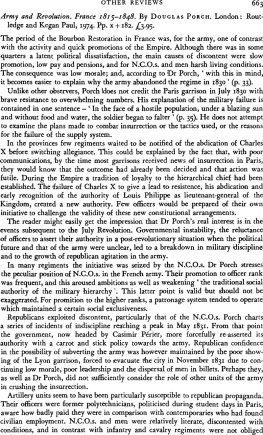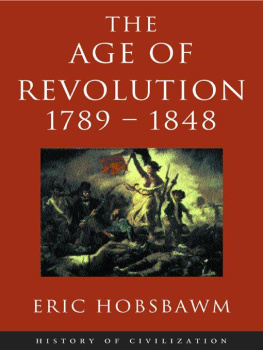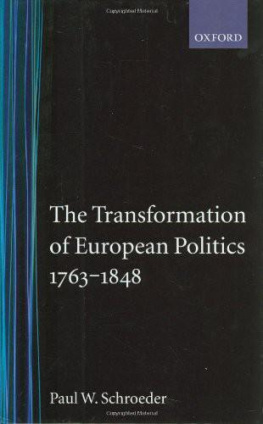Cover

History
European History
| title | : | 1848-A European Revolution? : International Ideas and National Memories of 1848 |
| author | : | Krner, Axel |
| publisher | : | Palgrave Macmillan (UK) |
| isbn10 | asin | : | 0333749294 |
| print isbn13 | : | 9780333749296 |
| ebook isbn13 | : | 9781403919595 |
| language | : | English |
| subject | Revolutions--Europe--History--20th century, Europe--History--1848-1849. |
| publication date | : | 2000 |
| lcc | : | D387.A14 2000eb |
| ddc | : | 940.2/85 |
| subject | : | Revolutions--Europe--History--20th century, Europe--History--1848-1849. |
cover
Page i
1848 A European Revolution?
page_i
Page ii
Also by Axel Krner
DAS LIED VON EINER ANDEREN WELT: Kulturelle Praxis im franzsischen
und deutschen Arbeitermilieu 184090
URBANE ELITEN UND KULTURELLER WANDEL ( with C. Gerbel et al .)
page_ii
Page iii
1848 A European
Revolution?
International Ideas and
National Memories of 1848
Edited by
Axel Krner
Lecturer in Modern European History
University College London

page_iii
Page iv

First published in Great Britain 2000 by
MACMILLAN PRESS LTD
Houndmills, Basingstoke, Hampshire RG21 6XS and London
Companies and representatives throughout the world
A catalogue record for this book is available from the British Library.
ISBN 0333749294

First published in the United States of America 2000 by
ST. MARTIN'S PRESS, INC.,
Scholarly and Reference Division,
175 Fifth Avenue, New York, N.Y. 10010
ISBN 0312226144
Library of Congress Cataloging-in-Publication Data
1848a European revolution?: international ideas and national
memories of 1848 / edited by Axel Krner.
p. cm.
Includes bibliographical references and index.
ISBN 0312226144
1. EuropeHistory18481849. 2. RevolutionsEurope
History20th century. I. Krner, Axel, 1967.
D387.A14 1999
940.285dc21 9916694
CIP
Selection, editorial matter and Chapters 1 and 5 Axel Krner 2000 Chapters 24, 611 Macmillan Press Ltd 2000
All rights reserved. No reproduction, copy or transmission of this publication may be made
without written permission.
No paragraph of this publication may be reproduced, copied or transmitted save with written permission or in accordance with the provisions of the Copyright, Designs and Patents Act 1988, or under the terms of any licence permitting limited copying issued by the Copyright Licensing Agency, 90 Tottenham Court Road, London W1P 0LP.
Any person who does any unauthorised act in relation to this publication may be liable to criminal prosecution and civil claims for damages.
The authors have asserted their rights to be identified as the authors of this work in accordance with the Copyright, Designs and Patents Act 1988.
This book is printed on paper suitable for recycling and made from fully managed and sustained forest sources.

Printed and bound in Great Britain by
Antony Rowe Ltd, Chippenham, WiltshireZ
page_iv
Page v
Contents
Acknowledgements vii Notes on the Contributors ix Part I Introduction 1 The European Dimension in the Ideas of 1848 and the Nationalization of Its Memories
Axel Krner 3
Part II A European Perspective on 1848 2 1848: Connected or Comparable Revolutions?
John Breuilly 31
3 Events and Non-Events Cultural Reflections of and on 1848
Martin Swales 50
4 Did Women Have a Revolution? Gender Battles in the European Revolution of 1848/49
Gabriella Hauch 64
Part III Internationalism and Nationalism in the European Revolution 5 Ideas and Memories of 1848 in France: Nationalism, Rpublique Universelle and Internationalism in the Goguette between 1848 and 1890
Axel Krner 85
6 National Union or Cosmopolitan Unity? Republican Discourse and the Instrumental Approach towards the German Question
Sabine Freitag 106
page_v
Page vi
7 Bohemian Spring 1848 Conflict of Loyalties and Its Picture in Historiography
Jan Havrnek 124
Part IV Commemorations of 1848 in National Context 8 From Divided Memory to Silence The 1848 Celebrations in Italy
Simonetta Soldani 143
9 First Performances Staging Memories of the French February Revolution
Rebecca L. Spang 164
10 Nationality Separates, Liberty Unites? The Historical Commemoration of 1848/49 in Baden, a European Frontier Region
Jan Merk 185
Part V Conclusion 11 How European Was the Revolution of 1848/49?
Reinhart Koselleck 209
Index 223
page_vi
Page vii
Acknowledgements
The idea of this book developed out of discussions with friends and colleagues about the changing meanings of 1848 on the occasion of the 150 years celebrations of the revolution. In February 1998, the Centre for European Research at University College London and the German Historical Institute, London invited historians from different parts of Europe to reassess the European dimension in the ideas of 1848 and to analyse the commemorations of the revolution in various periods of European history. The organization of this conference was possible thanks to generous financial contributions from the German History Society, the Royal Historical Society and the History Department of UCL.
I am indebted to all those who contributed with their knowledge, ideas and papers to the conference and to this book.
For the organization of the conference I wish to acknowledge the help and support of Mary Fulbrook and Sue Jones (Centre for European Research and German History Society), Peter Wende and Sabine Freitag (German Historical Institute, London), Kathy Burk (Royal Historical Society), and David French and Rachel Aucott (Department of History at UCL). Many thanks to the Faculty of Arts and Humanities and the History Department at UCL for its financial contribution to the publication of this book.
I owe an enormous debt of gratitude to Sabine Freitag and Rebecca Spang for the ideas and their critical comments on the conceptual outline of the project and on the introduction to this book. I wish to offer special thanks to Nazneen Razwi and Simon Renton for their help and support during the long process of writing and editing, and to Katie Joice for correcting the English of so many non-native speakers. I am grateful to Martin Swales for encouraging me over a long period of planning, to Martin Daunton, Rick Halpern, Bernhard Rieger and Charlotte Tacke for good ideas, to Jaroslava Kubisova, Diana Gibbins, Helen Matthews and Claire Smith for their organizational assistance, to Aruna Vasudevan for not losing her interest in
Next page

